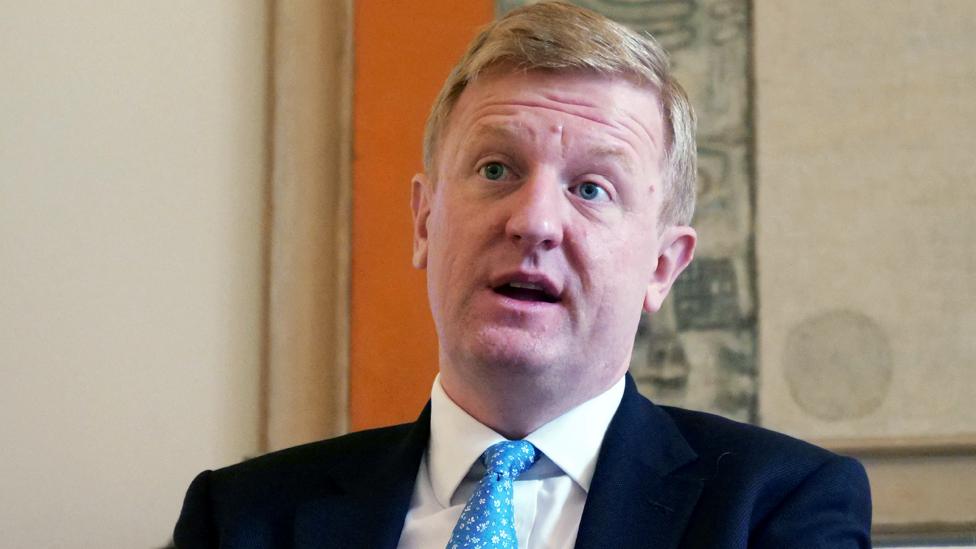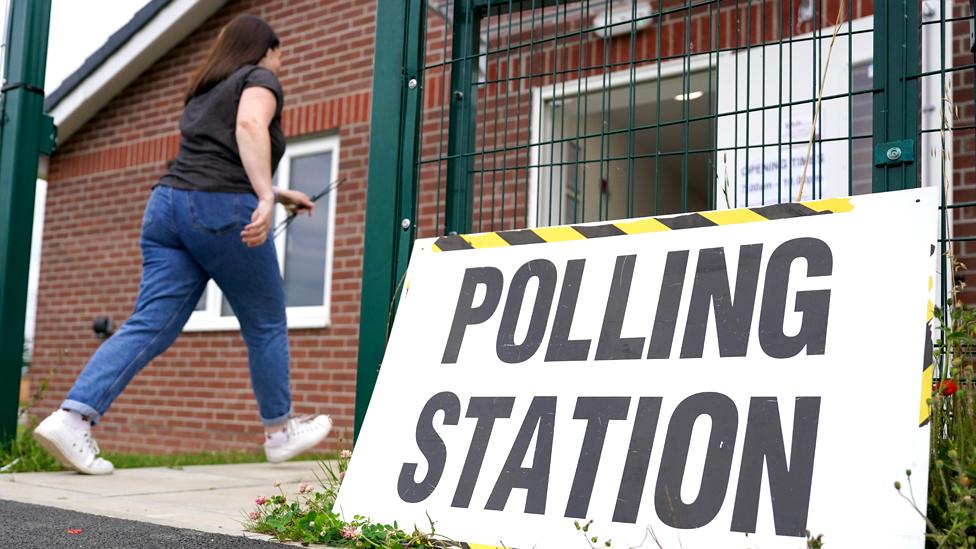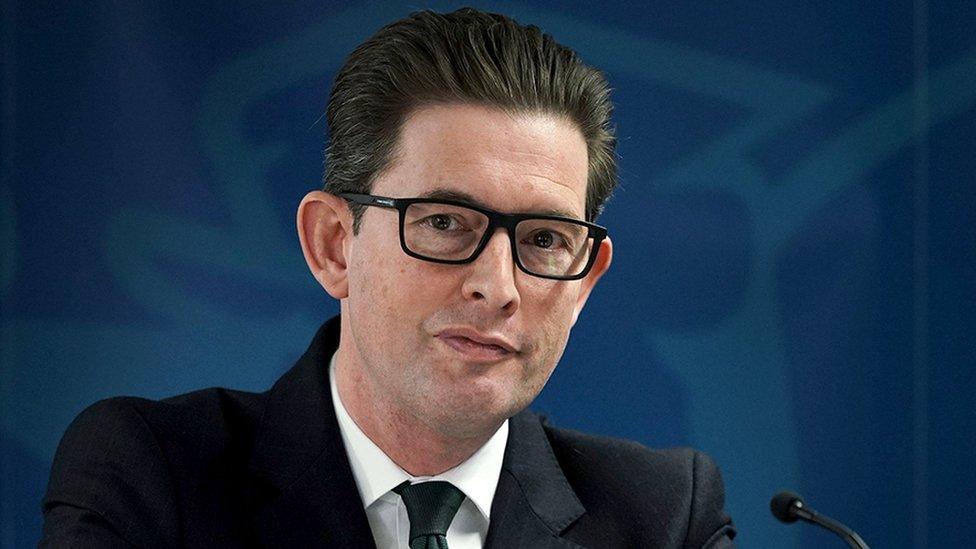China linked to UK cyber-attacks on voter data, Dowden to say
- Published

Deputy Prime Minister Oliver Dowden is expected to address MPs on the threat
The UK government is expected to link cyber-attacks which accessed personal details of millions of voters to China.
The attacks on the Electoral Commission took place in August 2021 but were only revealed last year.
Several MPs and peers who have been critical of Beijing are thought to have also been targeted in cyber-attacks.
The prime minister called China "the greatest state-based challenge to our national security".
Rishi Sunak said: "China represents an economic threat to our security and an epoch-defining challenge.
"So it is right we take steps to protect ourselves."
The BBC understands other Western nations will set out similar concerns.
Acknowledging the attacks last August, the Electoral Commission said unspecified "hostile actors" had gained access to copies of the electoral registers and broken into its emails and "control systems", but added that it had neither had any impact on any elections nor anyone's registration status.
The commission said last August that they weren't able to predict exactly how many people could be affected, but that the register for each year contained the details of around 40 million people.
Deputy Prime Minister Oliver Dowden will address Parliament on Monday about the threat.
It is now thought that Mr Dowden will suggest those behind the attack had links to Beijing, as well as laying out how the UK will respond to what it deems a wider threat.
Publicly identifying the attackers lays the groundwork for potential legal and political actions, such as sanctions or diplomatic protests.
Linking the attackers to China, a fellow member of the UN Security Council, would be an escalation in the diplomatic tension between the two countries.
This marks a major change from just a few years ago, when British leaders aimed to usher in a "Golden Age" with China.
The prime minister then was David Cameron, who is now the foreign secretary after taking a seat in the House of Lords last year.
China's foreign ministry spokesperson Lin Jian said the government cracked down and punished all types of malicious cyber activities.
He called on all parties to "stop spreading false information and take a responsible attitude to jointly maintain peace and security in cyberspace".
China's 'strategic threat'
The government is keen to stress it has already rejected or wound down Chinese investment in infrastructure in recent years on national security grounds.
Three MPs who are among those thought to have been targeted - former Conservative leader Sir Iain Duncan Smith, former minister Tim Loughton and the SNP's Stewart McDonald - will receive a briefing from the head of parliamentary security.
They are members of the Inter-Parliamentary Alliance on China, external which scrutinises, and often criticises, the activities of Beijing.
Mr Loughton told the BBC that "for too long" the government has not taken the "strategic threat" from China seriously.
Speaking on the Westminster Hour on BBC Radio 4: "We need to have a raft of senior Chinese officials seriously sanctioned because of what's been going on with this cyber attack, what's going on in Hong Kong [and] in Xinjiang".
Luke de Pulford, chair of the Inter-Party Alliance on China, said the government appeared to be "reluctant, in general, to hold China to account for its abuses".
China-backed cyber-attacks "have been going on for a very long time", he said, adding that politicians working with his group "suffered impersonation emails sent in their names" back in 2021.
UK government concern over Chinese espionage and parliamentary interference has been rising.
In September 2023, a parliamentary researcher was arrested under the Official Secrets Act accused of spying for China.
And a year before, an unusual parliamentary interference alert was issued regarding the activities of UK-based lawyer Christine Lee.
MI5 alleged she had been carrying out political interference activities including donating funds to support the work of MPs. This was all said to be on behalf of China.
China has consistently denied accusations of espionage and wrong-doing.
Labour's shadow Welsh secretary Jo Stevens has demanded "a new strategy" to tackle state threats.
She said that Labour is calling for "closer working between the Home Office and the Foreign Office to coordinate the UK's strategic response to this growing threat both to domestic security and our electoral freedoms".
- Published8 August 2023

- Published18 October 2023
